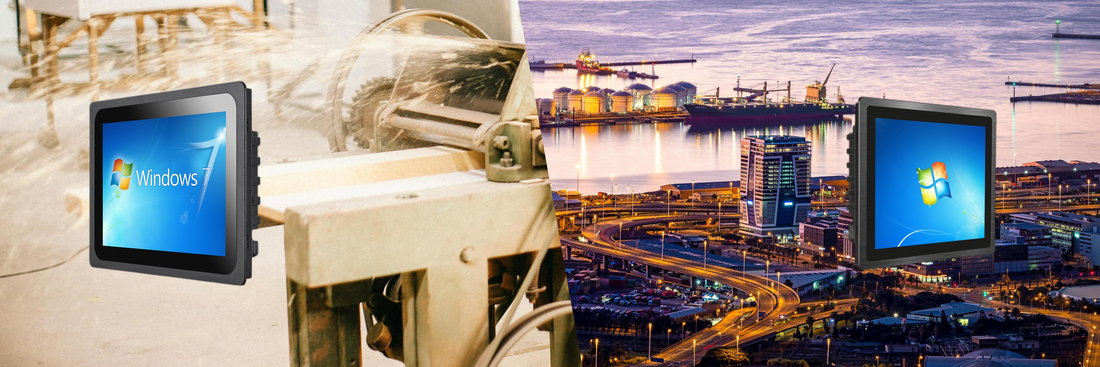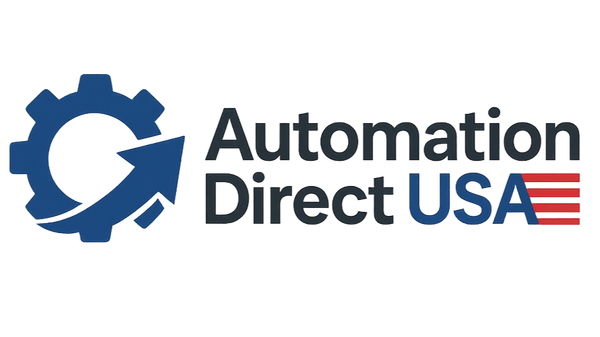
Ultimate Guide to Selecting the Best Industrial PC for Your Business
Ultimate Guide to Selecting the Best Industrial PC for Your Business
Industrial PCs (IPCs) have evolved as a backbone of modern industrial automation, offering enhanced reliability, durability, and performance compared to consumer-grade PCs. Whether you're involved in process control, data acquisition, or any other industry-specific tasks, choosing the right industrial PC is crucial for seamless operations and long-term efficiency. In this guide, we’ll delve deep into how to select the perfect industrial PC based on technical requirements, environment, and operational needs, with an in-depth exploration of available options, standards, and cutting-edge technologies.
Key Differences Between Industrial PCs and Consumer PCs
An industrial PC is designed for specialized applications, whereas a consumer PC is built for general purposes like office work or gaming. Industrial PCs excel in harsh environments where factors like temperature, shock, vibration, dust, and humidity must be considered.
Temperature Tolerance
- Industrial PCs: Can function in extreme environments, with operational temperatures reaching up to 85°C, and some models even work in frigid temperatures as low as -70°C.
- Consumer PCs: Typically function at a maximum of 35°C, making them unsuitable for rugged environments.
Shock and Vibration Resistance
- Industrial PCs: Are mounted on shock absorbers that protect key components, such as hard drives and circuit boards, from physical impacts and vibrations common in factory settings.
- Consumer PCs: Lack such protection and are generally not designed to handle physical abuse.
Dust and Humidity Protection
- Industrial PCs often feature dust filters and are sealed to protect against humidity, essential in factories or outdoor environments. Some advanced models are fanless, relying on innovative cooling technologies to prevent dust accumulation and system overheating.
Power Supply Stability
- Factories often experience voltage fluctuations. Industrial PCs are built with stabilized DC voltage power supplies to prevent damage from such inconsistencies, a feature absent in most consumer models.
Modularity and Expandability
- Industrial PCs are designed for long-term use and can be expanded or modified over time with additional storage, memory, or custom interfaces. Their modular architecture means that components such as the CPU, RAM, and storage devices can be upgraded as the demand grows.
Durability and Lifespan
- The average lifespan of an industrial PC is 7 years or more, far exceeding that of a typical consumer PC, which is often considered obsolete after 3 to 4 years. Industrial PCs maintain longer component availability, allowing for easy repairs and upgrades over time.
Types of Industrial PCs: Choose the Right One for Your Needs
Selecting the appropriate industrial PC depends on the specific operational needs of your industry. Here's a breakdown of various types of industrial PCs:
- Embedded PCs
- Use Case: Ideal for systems that require embedded computing solutions, like automotive applications, machine control, or robotics. These are specialized computers integrated into larger systems and play a significant role in the Internet of Things (IoT) by enabling connectivity between machines and devices.
- Panel PCs
- Use Case: These are industrial PCs with an integrated display, making them perfect for human-machine interface (HMI) applications in manufacturing, healthcare, or retail environments. Panel PCs provide easy access to vital controls and data directly on the shop floor.
- Box PCs
- Use Case: Resembling a traditional desktop but with ruggedized features, box PCs are highly versatile and can be mounted in racks or directly into machines. They’re often used in process automation, quality control, and data acquisition.
- All-in-One PCs
- Use Case: With all components integrated into a single unit, including the screen, processor, and peripherals, these systems are useful for space-constrained environments or applications that require compact solutions.
- Servers
- Use Case: Rack-mounted servers are powerful industrial PCs capable of handling massive computational tasks and providing centralized data management across multiple client systems. They are commonly found in industries needing data-intensive operations like CAD/CAM, simulation, and machine learning.
Essential Technical Characteristics for Industrial PCs
When selecting an industrial PC, the following technical characteristics are pivotal to ensure optimal performance and longevity.
Processor (CPU)
- The CPU is the brain of the PC. Depending on the complexity of your operations, you may choose anything from an entry-level processor for simple data logging to a high-end multi-core processor for tasks involving machine learning, 3D rendering, or real-time analytics.
Memory (RAM)
- RAM is vital for ensuring fast data access. For light tasks, 4-8 GB may suffice, but for memory-intensive tasks like virtualization, consider 16 GB or more to prevent bottlenecks in performance.
Storage: HDD vs. SSD
- The two main types of storage are Hard Disk Drives (HDDs) and Solid-State Drives (SSDs). While HDDs offer more storage at a lower cost, SSDs are faster, more reliable, and more durable. Opt for SSD if your application requires speed and resilience to shocks.
Operating System (OS)
- Industrial PCs usually run on Windows, Linux, or even custom operating systems. Compatibility with existing systems, peripherals, and software solutions should guide your OS selection.
I/O Ports and Expansion Slots
- Your industrial PC should have enough I/O ports to support peripherals, such as displays, sensors, and communication devices. Ensure the PC is compatible with future expansion via PCIe slots, USB, HDMI, or Ethernet ports, depending on your needs.
Storage Options: HDD vs. SSD and Beyond
The choice between HDDs and SSDs depends on your specific storage needs:
When to Choose HDD:
- High Capacity: If you require a large storage capacity at a lower cost.
- Archival Storage: Great for storing large amounts of data that doesn’t need to be accessed frequently.
When to Choose SSD:
- Speed: SSDs dramatically improve system boot times, application launch speeds, and data retrieval.
- Durability: SSDs have no moving parts, making them more resistant to shock and vibration, essential for mobile applications or harsh environments.
Cloud Storage and Storage Servers:
- Cloud storage is becoming increasingly popular, providing remote access to data and reducing the need for large internal storage. For high-volume environments, consider using dedicated storage servers, which can handle vast amounts of data and streamline access across an entire network.
Standards and Certifications for Rugged Industrial PCs
IP Code (Ingress Protection):
- The IP rating specifies how well the industrial PC is protected from solid particles and liquids. Common ratings include IP65 (dust-tight and protected from water jets) and IP67 (submersible in water), ideal for environments like oil refineries or outdoor mining sites.
ATEX Standards:
- If your industrial PC will operate in hazardous environments where there is a risk of explosions, ensure it meets ATEX certifications. This is vital for industries like petrochemicals or mining.
MIL-STD-810:
- Originally developed for military applications, MIL-STD-810 ensures the PC can endure extreme environmental conditions, such as high altitude, temperature fluctuations, and corrosive environments. Many commercial rugged laptops now comply with this standard.
Additional Considerations
Fanless Designs
- Modern fanless PCs use innovative cooling technologies such as heat sinks to dissipate heat, making them more reliable in dusty or greasy environments. This reduces the chance of breakdown due to fan failure, extending the lifespan of the device and reducing maintenance costs.
Conclusion: Making the Right Choice
Choosing the right industrial PC requires a careful balance of performance, durability, expandability, and cost-efficiency. Consider your operational environment and the specific demands of your applications, and don't forget to future-proof your system with expandable components and rugged design features.
For advanced solutions that integrate smoothly into industrial settings, customizable to meet the demands of your operations, visit IMDTouch.com or reach out to support@IMDTouch.com for expert advice on optimizing your industrial PC selection.
